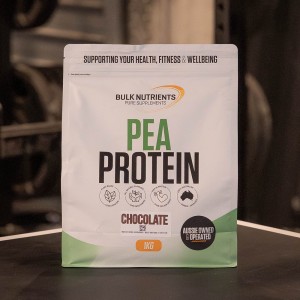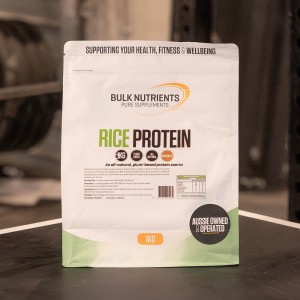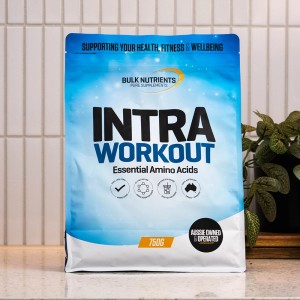The Best Sources of Plant Protein for Vegans
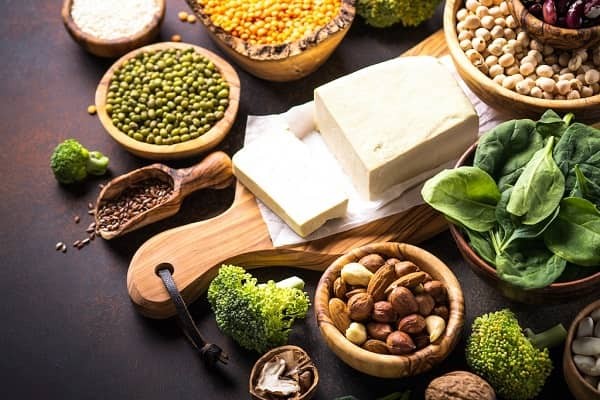
Best plant protein sources
For starters, you have to understand how much protein you need per day.
For muscle growth, you'll need 1.7 - 2.6 grams of protein per kilogram of body weight, per day, and for weight loss the higher end of this.
And it's difficult for you as a vegan to get this amount sometimes because plant-based foods are lower in protein.
The other hurdle is that they are incomplete sources of protein; an incomplete source of protein doesn't contain all essential amino acids.
For omnivores, the majority of their protein sources (chicken, beef, etc) contain all nine essential amino acids in the right proportion to build protein in the body.
But the biggest issue is the key amino acid that vegans can miss out on.
I'm talking about leucine, one of the three branched-chain amino acids (BCAAs).
Plant Foods high in protein and leucine
So, you know how much protein you need to be getting, and you know that leucine is one of the key amino acids you need to consume enough of.
With that in mind, let's take a look at some plant protein recommendations:
| Food | Protein per 100 g |
|---|---|
| Pumpkin seeds (dried, uncooked) | 30.2 |
| Lentils (red, split, uncooked) | 24.6 |
| Black beans (uncooked) | 21.6 |
| Almonds (raw) | 21.2 |
| Tempeh | 20.3 |
| Tofu (calcium set) | 17.3 |
| Oats (rolled) | 16.9 |
| Quinoa (uncooked) | 14.1 |
(Table adapted from Rogerson, 2017).
Also, peas, potatoes, peanuts, walnuts and pistachios will really help vegans reach adequate protein levels.
And to give you an idea of leucine measures up in some plant sources versus whey (an animal source), take a look at the below, paying special attention to the blue column which represents leucine:
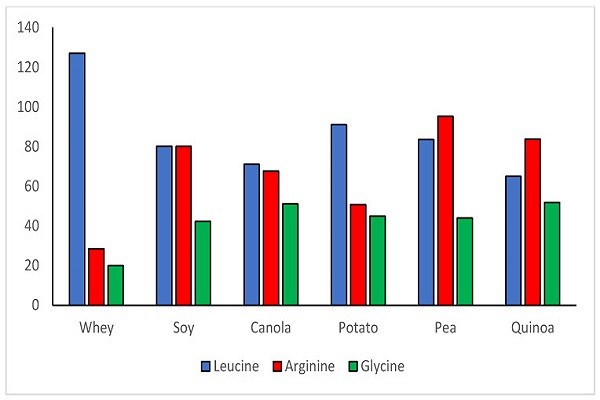
Table adapted from Hertzler.
So, that should give you an idea of what foods to prioritise.
And a lot of the time, getting this food can be very difficult. And so, supplements are a great way to ensure leucine isn't something you need to worry about.
Vegan supplements for muscle growth
Imagine the benefits of whey, but vegan friendly? Well, that's what Bulk Nutrients have put together here for vegans...
Their Intra Workout product contains 3.4 grams of leucine, including all essential amino acids, and 21 grams of protein.
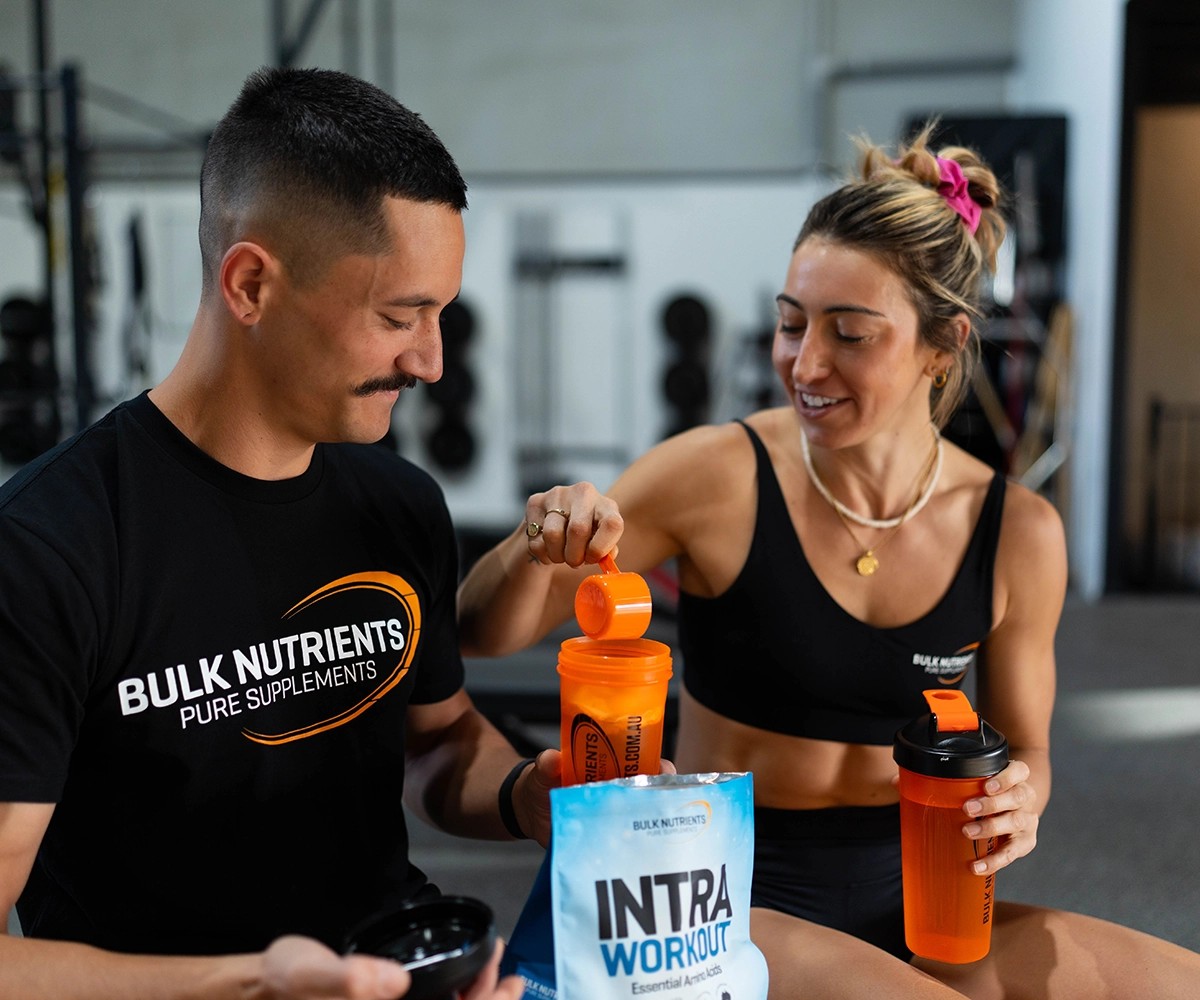
And how do the 3.4 grams of leucine here measure up?
Well, for those of us who don't exercise, the recommended daily dose of leucine is around 40-45 mg per kilogram of body weight daily.
So, for someone who weighs 80 kilograms, that works out to be 3.6 grams of leucine daily; more or less covered by a serve of Intra Workout.
And for those of us who exercise, precise dosages are yet to be declared, so we'll stick to the higher end to be safe: up to 4-5 grams is no trouble when you factor in your list of plant-based foods and supplements like intra Workout (where two servings a day is ideal).
Other supplements to consider are Pea Protein and Rice Protein. For example, this study compared rice protein with whey in 24 healthy males in their 20s.
The subjects had performed resistance training at least 3 times per week for the past 6 months and had been training for at least a year.
They were matched by weight, age, strength and experience, and then placed into rice or the whey group. They were given either 48 grams of whey protein, or 48 grams of rice protein.
So, what did they find?
Both rice and whey protein improved body composition and exercise performance, and there "were no differences between the two groups."
So basically, a higher dose of plant protein yields a solid result.
And this is because plant-based proteins contain about 6–8% leucine, and in low doses aren't as effective at increasing muscle protein synthesis as animal-based proteins, which boast 8-11% leucine.
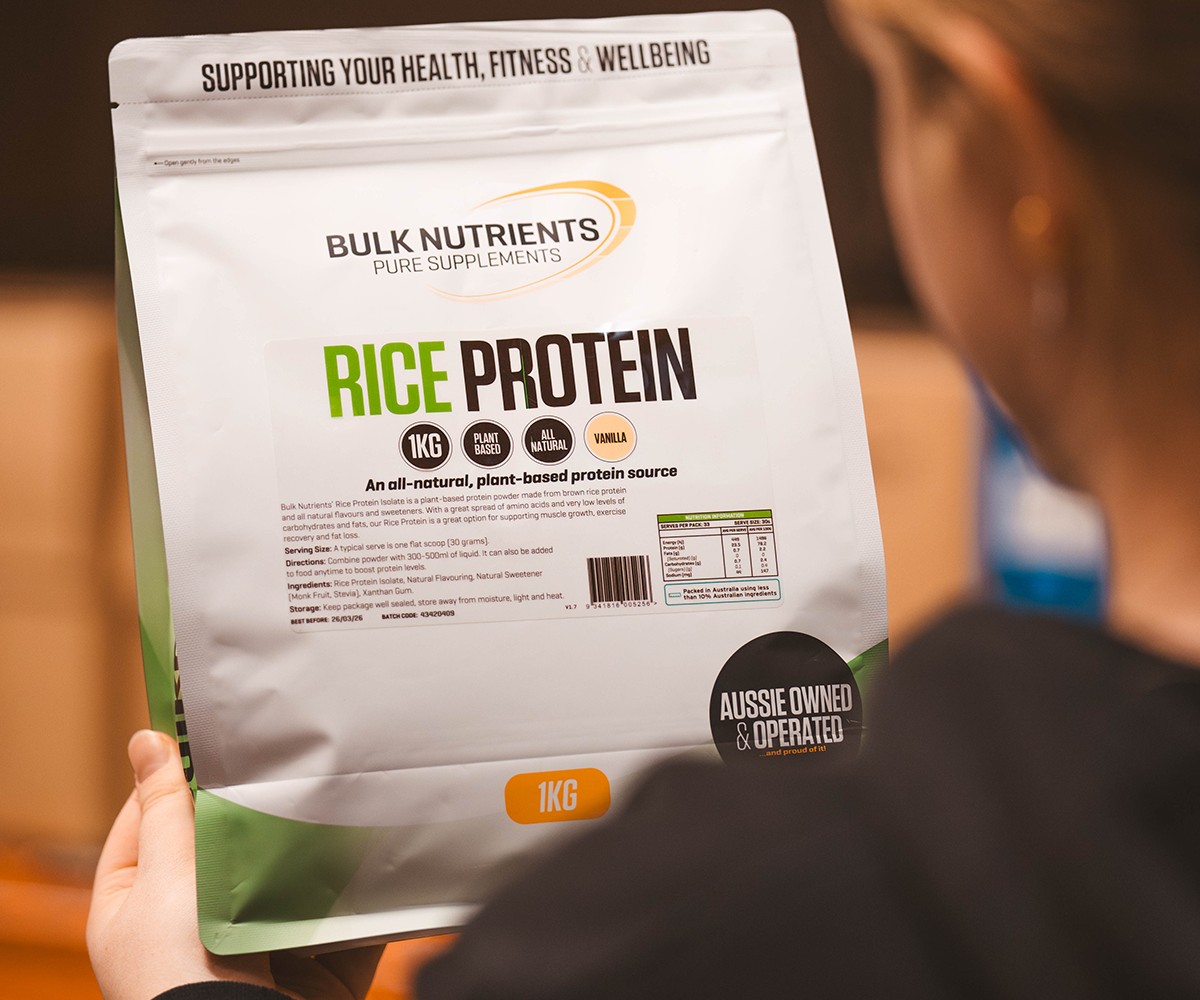
The same can be said for pea protein when it's compared against whey protein.
Keep in mind that whey protein has 8.6 grams of leucine per 100 grams and pea protein has 6.4 grams.
So, this study examined 161 males from the ages of 18-35 for 12 weeks.
They trained their biceps and were randomised to take either 25 grams of either pea protein, whey protein, or a placebo twice daily.
Their biceps growth was measured via ultrasound at the start, middle, and end of the research. Strength was also accounted for.
So, what did they find?
No difference between both protein groups in terms of muscle growth, and muscle strength was not statistically different between the groups. The researchers concluded:
"Since no difference was obtained between the two protein groups, vegetable pea proteins could be used as an alternative to Whey-based dietary products."
For vegans, supplements are very important, and perhaps the most valuable given all these findings.
The bottom line on plant-based protein
vegans can still get adequate sources of protein by focusing on certain plant-based foods that contain a lot of it: Pumpkin seeds, lentils, black beans, almonds, tempeh, tofu, oats, quinoa, and peas. Potatoes, peanuts, walnuts and pistachios can also help.
Of particular interest to vegans should be supplements -- particularly pea protein and rice protein that grow muscle at the same rate as their whey counterparts in the right dosage. With a clear strategy including the foods and supplements above, vegans can get adequate protein and leucine, the amino acid critical for muscle growth and recovery.
References:
- Babault N, Païzis C, Deley G, et al. Pea proteins oral supplementation promotes muscle thickness gains during resistance training: a double-blind, randomized, Placebo-controlled clinical trial vs. Whey protein. J Int Soc Sports Nutr. 2015;12(1):3. Published 2015 Jan 21. doi:10.1186/s12970-014-0064-5
- Campbell B, Kreider RB, Ziegenfuss T, La Bounty P, Roberts M, Burke D, Landis J, Lopez H, Antonio J. International Society of Sports Nutrition position stand: protein and exercise. J Int Soc Sports Nutr. 2007 Sep 26;4:8. doi: 10.1186/1550-2783-4-8. PMID: 17908291; PMCID: PMC2117006.
- Górska-Warsewicz H, Laskowski W, Kulykovets O, Kudlińska-Chylak A, Czeczotko M, Rejman K. Food Products as Sources of Protein and Amino Acids-The Case of Poland. Nutrients. 2018;10(12):1977. Published 2018 Dec 13. doi:10.3390/nu10121977
- Helms ER, Aragon AA, Fitschen PJ. Evidence-based recommendations for natural bodybuilding contest preparation: nutrition and supplementation. J Int Soc Sports Nutr. 2014 May 12;11:20. doi: 10.1186/1550-2783-11-20. PMID: 24864135; PMCID: PMC4033492.
- Hertzler SR, Lieblein-Boff JC, Weiler M, Allgeier C. Plant Proteins: Assessing Their Nutritional Quality and Effects on Health and Physical Function. Nutrients. 2020;12(12):3704. Published 2020 Nov 30. doi:10.3390/nu12123704
- Joy JM, Lowery RP, Wilson JM, et al. The effects of 8 weeks of whey or rice protein supplementation on body composition and exercise performance. Nutr J. 2013;12:86. Published 2013 Jun 20. doi:10.1186/1475-2891-12-86
- Mero A. Leucine supplementation and intensive training. Sports Med. 1999 Jun;27(6):347-58. doi: 10.2165/00007256-199927060-00001. PMID: 10418071.
- Nehete JY, Bhambar RS, Narkhede MR, Gawali SR. Natural proteins: Sources, isolation, characterization and applications. Pharmacogn Rev. 2013;7(14):107-116. doi:10.4103/0973-7847.120508
- Rasmussen BB, Phillips SM. Contractile and nutritional regulation of human muscle growth. Exerc Sport Sci Rev. 2003;31:127–131. doi: 10.1097/00003677-200307000-00005.
- Rogerson D. Vegan diets: practical advice for athletes and exercisers. J Int Soc Sports Nutr. 2017;14:36. Published 2017 Sep 13. doi:10.1186/s12970-017-0192-9
- van Vliet S, Burd NA, van Loon LJ. The skeletal muscle anabolic response to plant- versus animal-based protein consumption. J Nutr. 2015;145(9):1981–1991. doi: 10.3945/jn.114.204305.
- Wilkinson SB, Tarnopolsky MA, Macdonald MJ, Macdonald JR, Armstrong D, Phillips SM. Consumption of fluid skim milk promotes greater muscle protein accretion after resistance exercise than does consumption of an isonitrogenous and isoenergetic soy-protein beverage. Am J Clin Nutr. 2007;85:1031–1040.
Related Blogs
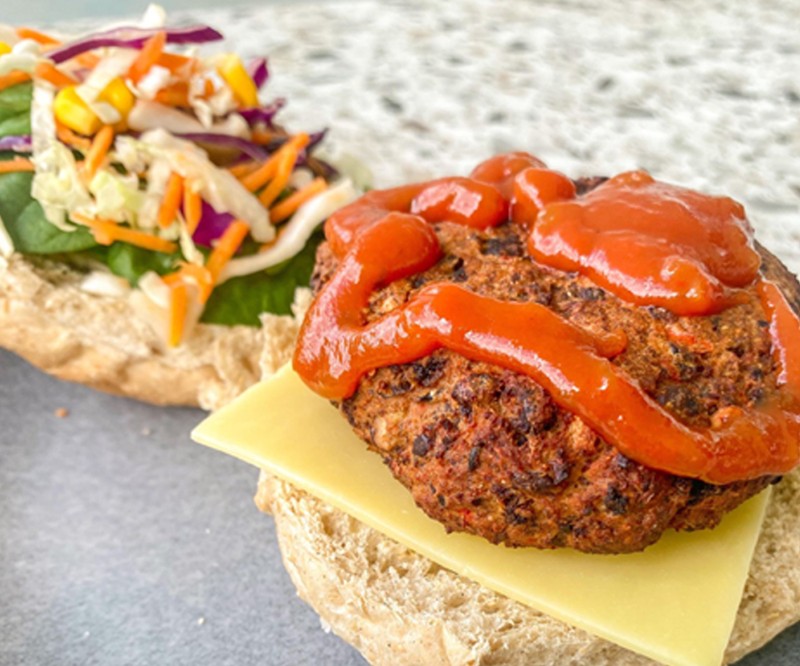
High Protein Black Bean & Quorn Burgers
Posted by Liesl D’Rozario
Recipe difficulty: Easy
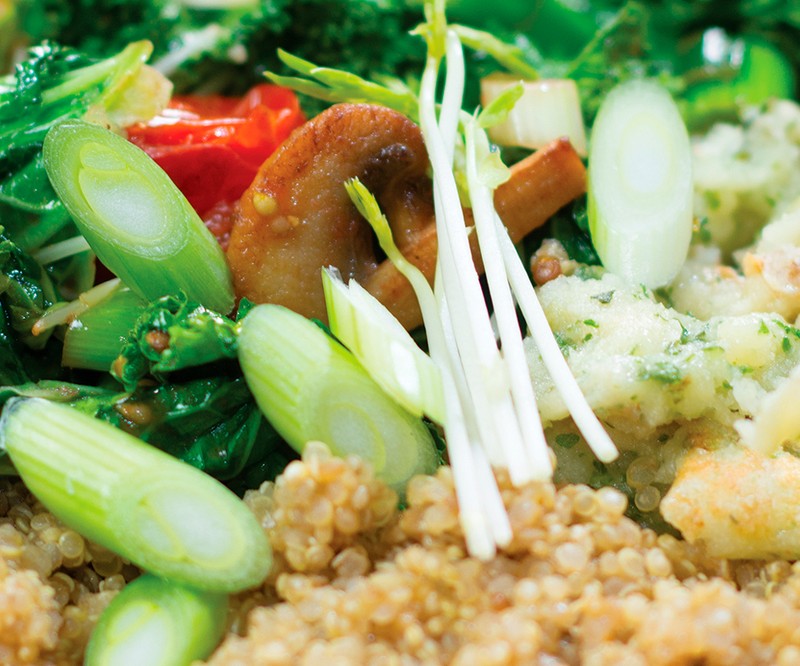
Egg, Quinoa And Greens Breakfast Bowl
Posted by Nicole Frain
Recipe difficulty: Moderate
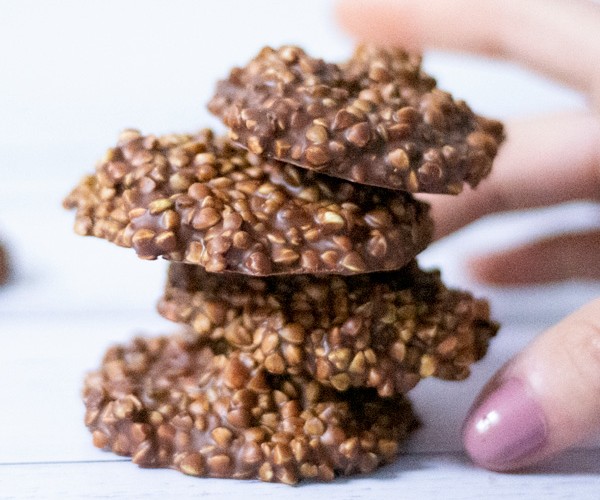
Crispy Chocolate Quinoa Cookies
Posted by Nicole Frain
Recipe difficulty: Easy
